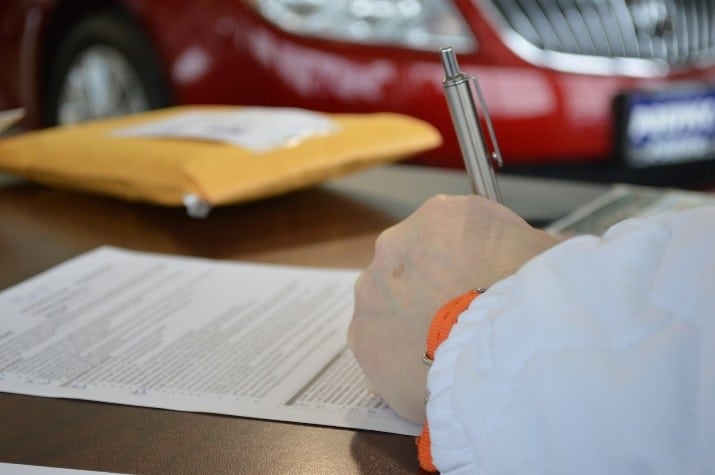Collateral loans, also known as secured loans, let you borrow money by using something valuable you own such as a car, home, or other asset as a guarantee for repayment. Because the lender has this security, these loans often come with lower interest rates and can be easier to qualify for, even if you have less than perfect credit.
However, it is important to borrow only what you can comfortably repay. If you cannot make the required payments, the lender has the right to take possession of your collateral to recover the remaining balance.4
In a Nutshell:
Collateral loans can be a practical way to access funds while building financial stability, but you should always understand the risks before pledging your assets as security.
Understanding Collateral Loans
Collateral loans allow you to use something valuable you own, such as a car, as security for the loan. Traditionally, vehicles and homes have been the most common types of collateral for secured loans like auto loans and mortgages. However, the range of acceptable collateral is expanding, and many lenders now also consider:
- Motorcycles
- Boats
- Savings Accounts
- Certificates of Deposit (CDs)
- Investment Accounts
- Jewelry
- Insurance Policies (with cash value)
- Collectible art
Collateral loans often offer lower interest rates and higher loan amounts compared to unsecured loans. For borrowers with poor credit or limited income, using a vehicle as collateral may be one of the few available options.
Evaluating Collateral Value
The value of your collateral plays a key role in the secured loan process.
- Loan Approval: To qualify for a secured loan, lenders must assess the value of your collateral. This is often done through a professional appraisal, though some lenders may allow online evaluations using photos or videos.
- Loan Amount and Interest Rates: The value of your collateral helps determine both the amount you can borrow and the interest rate you receive. In most cases, higher-value collateral can qualify you for a larger loan and a lower interest rate.
Here’s an Example of a Collateral Loan:
Maria, a freelance photographer in Phoenix, needed $3,000 for new camera equipment to take on a large client project. Since her credit score was below 600, she didn’t qualify for most personal loans. Instead, she used her fully paid-off 2014 Toyota Corolla as collateral.
The lender assessed the car’s value at $6,500 and offered a 12-month loan at a 14% APR. Maria made monthly payments of about $270 and successfully paid off the loan, retaining ownership of her vehicle throughout.
She later shared that understanding the risks and staying disciplined with repayment helped her build trust with lenders and slightly improve her credit score.
The Collateral Loan Process
Applying for a Collateral Loan:
Getting a collateral loan, such as a car title loan, is simple and straightforward:
- Apply online with our no-obligation application form.2
- Collect your cash once approved and continue driving your car.
- Make monthly payments until your loan is fully repaid.
Required Documents:
- Proof of ownership
- Proof of identification
- Proof of the collateral’s condition
- Proof of income to show you can afford the loan payments
Lender tip: If you do not have a standard proof of income there are some alternative income sources that could qualify you.
Collateral Loans: Weighing the Options
Secured loans come with both advantages and challenges, depending on your financial situation. Below are some key points to consider before applying for a car collateral loan:
| Pros of Car Collateral Loans | Cons of Car Collateral Loans |
| Often lower interest rates and higher loan amounts | Risk of losing your asset if you default |
| Higher chance of approval with bad credit | Requires appraisal or valuation of the collateral |
| Flexible repayment terms | You cannot sell the collateral until the loan is repaid |
| Various types of collateral may be accepted | Missed payments can negatively affect your credit score |
Responsible Borrowing Tips
Before taking out a collateral loan, it’s important to consider your long-term ability to repay and the potential risk of losing the asset used as security (e.g., your car or home). Here are some tips for responsible borrowing:
- Borrow only what you need and can realistically repay within the loan term.
- Read all loan terms carefully, especially interest rates, fees, and repossession conditions.
- Have a repayment plan in place before signing the agreement.
For more information on borrowing responsibly, refer to these resources:
Types of Collateral Loans
Collateral loans allow borrowers to use valuable assets as security for borrowed funds. Below are some of the most common types:
- Title Loans: Title loans are secured personal loans that use your vehicle’s title as collateral. The lender holds the title until the loan is fully repaid. These loans can provide fast access to cash but often come with high interest rates and the risk of losing your vehicle if payments are missed.
- Mortgages: With a mortgage, your home serves as collateral for the loan. If payments are not made, the lender can take possession of the property. Mortgages are typically used to purchase a home or refinance an existing one, and the loan amount depends on the home’s appraised value and your ability to repay.
- Home Equity Loans: A home equity loan allows homeowners to borrow money based on the equity in their property, which is the difference between the home’s market value and the remaining mortgage balance. This type of loan can be used for home improvements, debt consolidation, or other major expenses.
- Auto Loans: Auto loans are used to finance the purchase of a new or used car, with the vehicle itself serving as collateral. If the borrower fails to make payments, the lender can repossess the car to recover the remaining balance. Loan terms vary based on the borrower’s credit profile.
- Business Loans: usiness loans can be secured by business assets, cash flow, or other forms of collateral. They are designed to help fund business operations or growth and often come with flexible terms and competitive interest rates based on the company’s financial standing.
- Secured Credit Cards: A secured credit card requires a cash deposit as collateral, which typically sets the credit limit. These cards are helpful for individuals with limited or poor credit history who want to build or rebuild credit. Making on-time payments and managing the card responsibly can improve credit over time.

Collateral Loan vs Other Loan Types
| Loan Type | Secured/Unsecured | Typical Use Cases | Credit Requirements | Risk to Assets | Interest Rates |
|---|---|---|---|---|---|
| Collateral Loan | Secured | Emergency cash, business, etc. | Low to moderate | High (loss of collateral) | Moderate to High |
| Personal Loan | Unsecured | Debt consolidation, large purchases | Moderate to high | None | Low to Moderate |
| Payday Loan | Unsecured | Small, urgent cash needs | None | None, but high fees/rollovers | Very High |
| Home Equity Loan | Secured | Home renovations, large expenses | Good credit, equity required | Home at risk | Low to Moderate |
| Credit Card Cash Advance | Unsecured | Small, urgent expenses | Varies | None | High + fees |
Conclusion
Collateral loans can be a practical way to access quick funding by using your vehicle or other valuable assets as security. However, it is important to fully understand the terms, responsibilities, and potential risks before moving forward. Missing payments could result in losing your collateral, so always borrow responsibly and make payments on time.
To get an idea of your potential loan amount, monthly payment, and interest rate, try our online title loan calculator. If you would like to learn more about our loan options, fill out our online request form to see if you qualify with no obligation.
FAQ
Are Collateral Loans Hard to Get?
Collateral loans are often easier to qualify for than unsecured loans, especially if you have limited credit history or bad credit. The collateral gives lenders security, allowing more flexibility with credit requirements. However, approval still depends on your income, creditworthiness, and the value of your collateral.
Do Banks Still Give Collateral Loans?
Yes. Banks continue to offer many types of collateral loans, such as auto loans and mortgages. However, they often have stricter requirements and longer approval processes compared to other secured loan lenders.
Can I Get a Loan with Bad Credit if I Have Collateral?
Yes. Having valuable collateral can greatly improve your chances of getting approved, even with bad credit. The collateral reduces the lender’s risk, though you may still face higher interest rates than borrowers with strong credit.
Can I Use the Same Collateral for Two Loans?
It is generally not recommended. Using the same asset for multiple loans can cause legal or financial conflicts if you cannot repay. Most lenders do not allow it. Exceptions may apply, such as home equity loans on top of a mortgage or cross-collateralization with the same lender. Always review your loan agreement and speak with your lender before considering this option.
What Happens if I Default on a Collateral Loan?
If you default on a collateral loan, the lender can take possession of the asset used as security to recover the remaining loan balance.
Can I Get a Loan Against My Car?
Yes, you can get a loan against your car through what’s commonly called a car title loan or a vehicle-secured loan. This type of collateral loan allows you to borrow money using your car title as security. To qualify, you typically must own your car outright or have significant equity in it. The lender will assess the car’s value and your ability to repay the loan.
It’s important to note that if you default, the lender may repossess the vehicle. Always review the terms carefully and consider alternatives if you’re unsure about using your vehicle as collateral.


